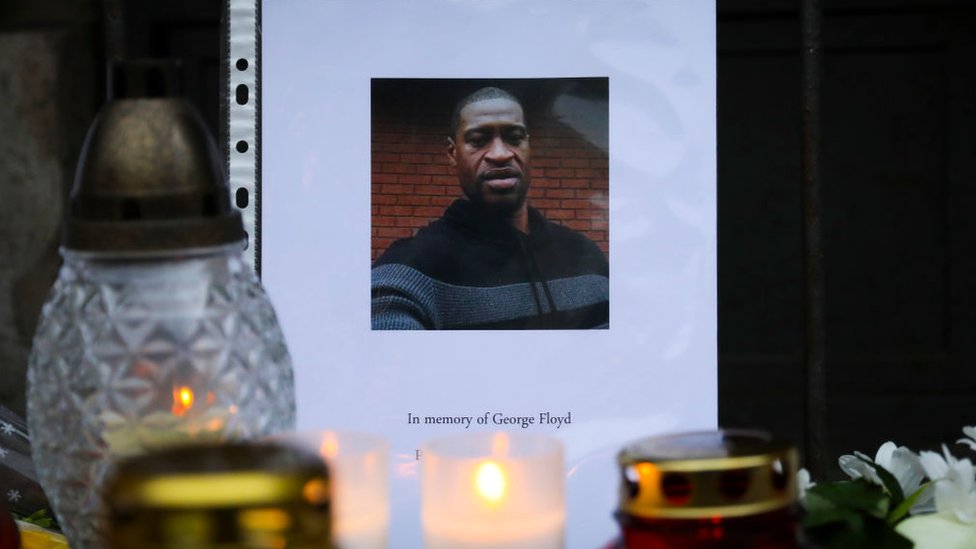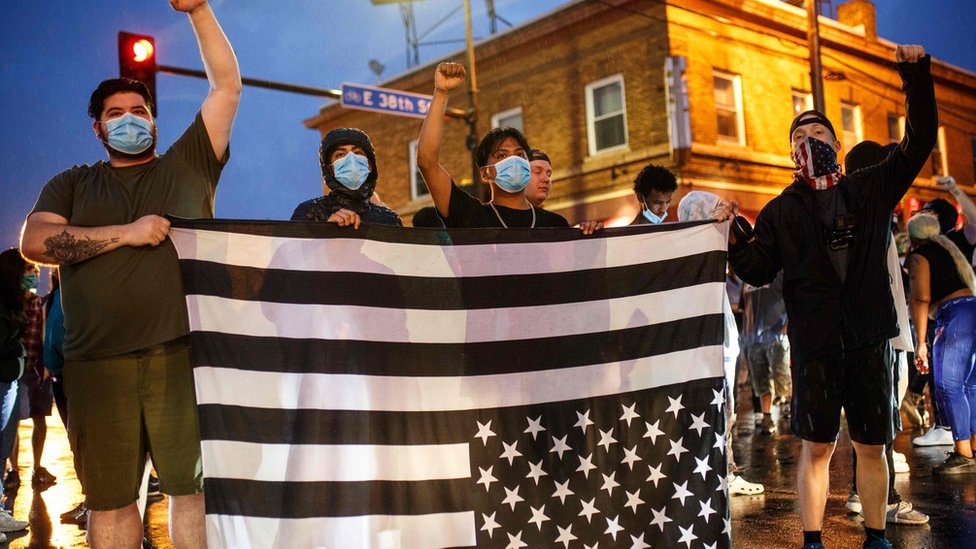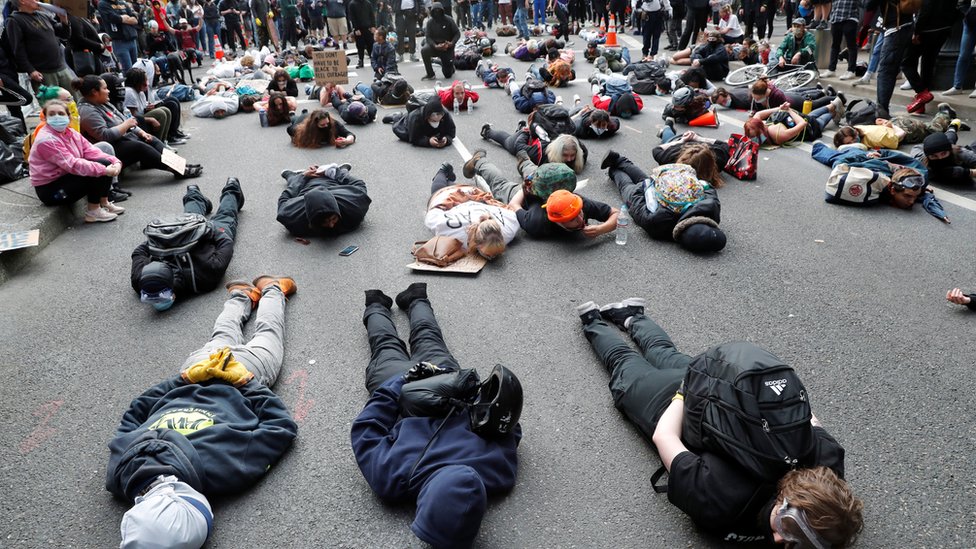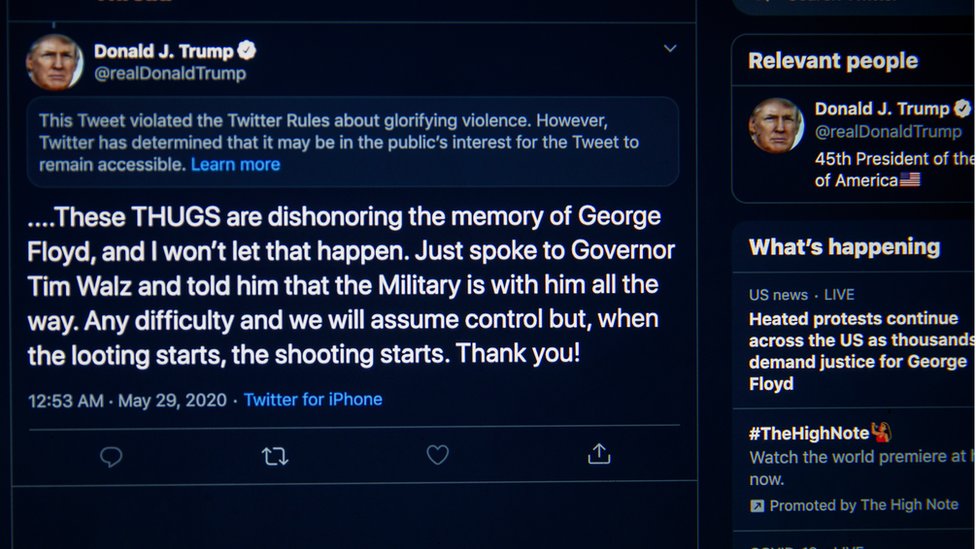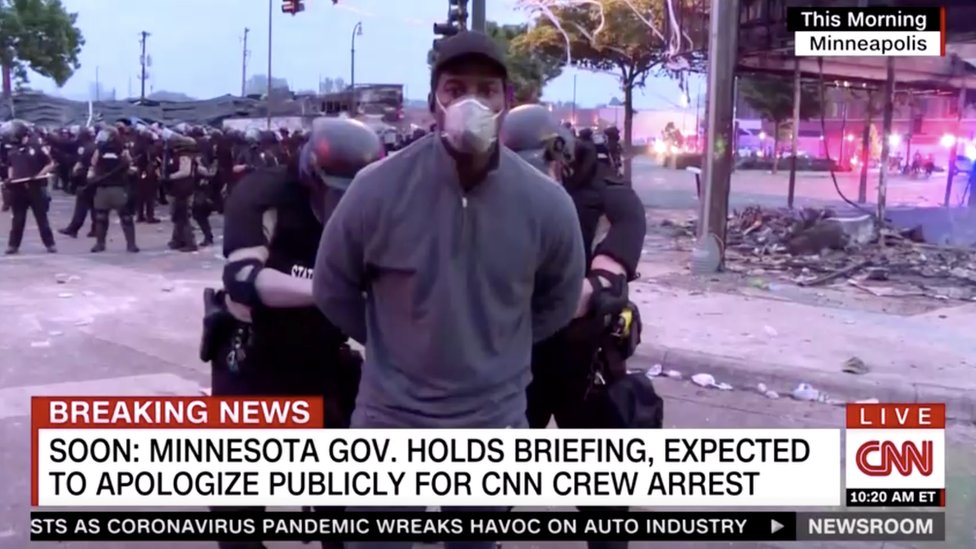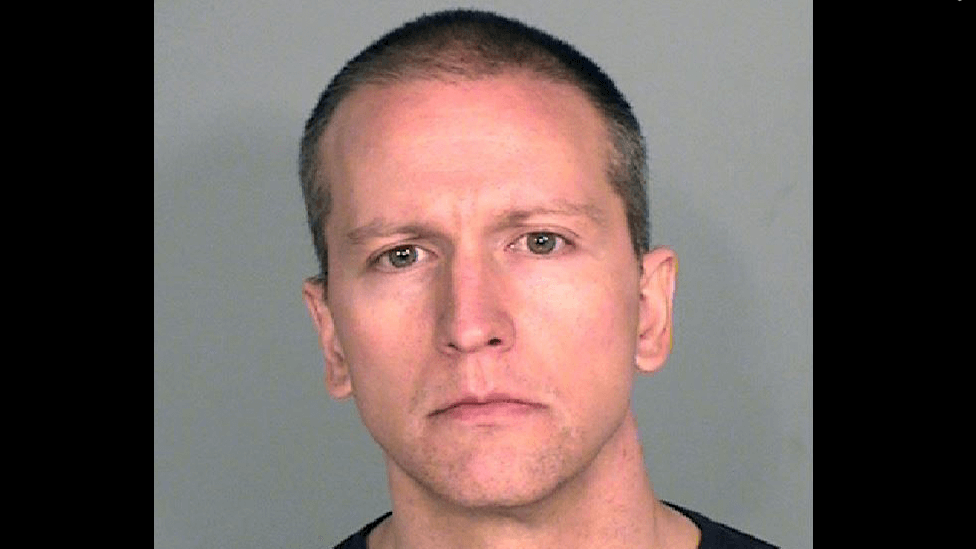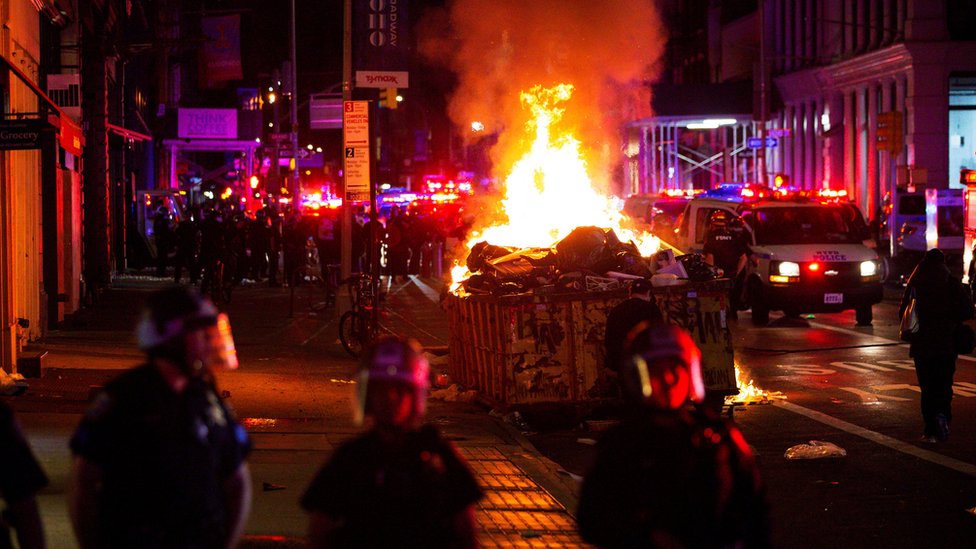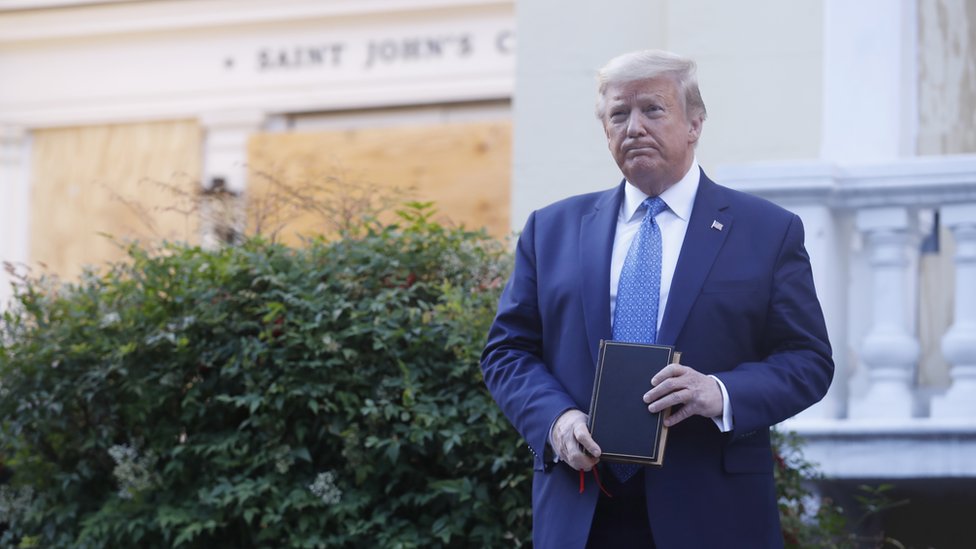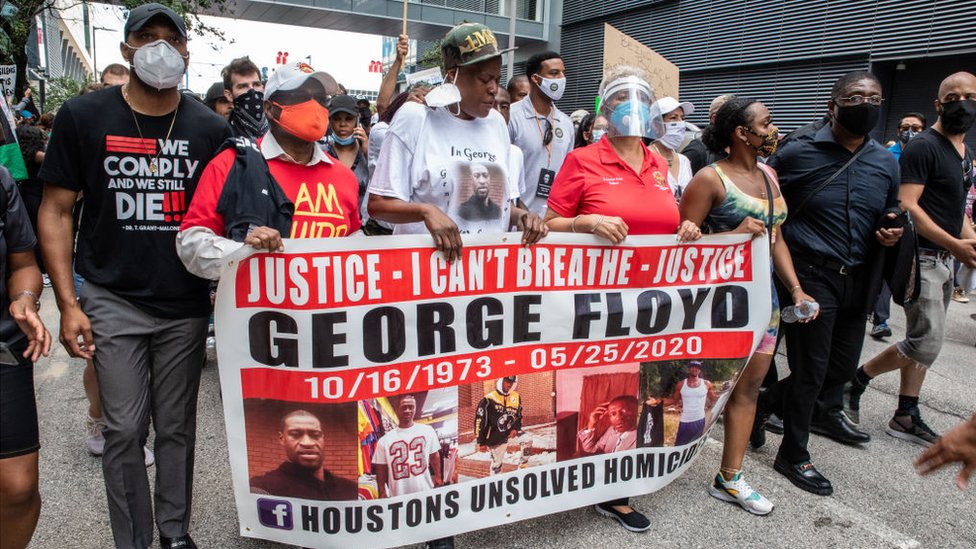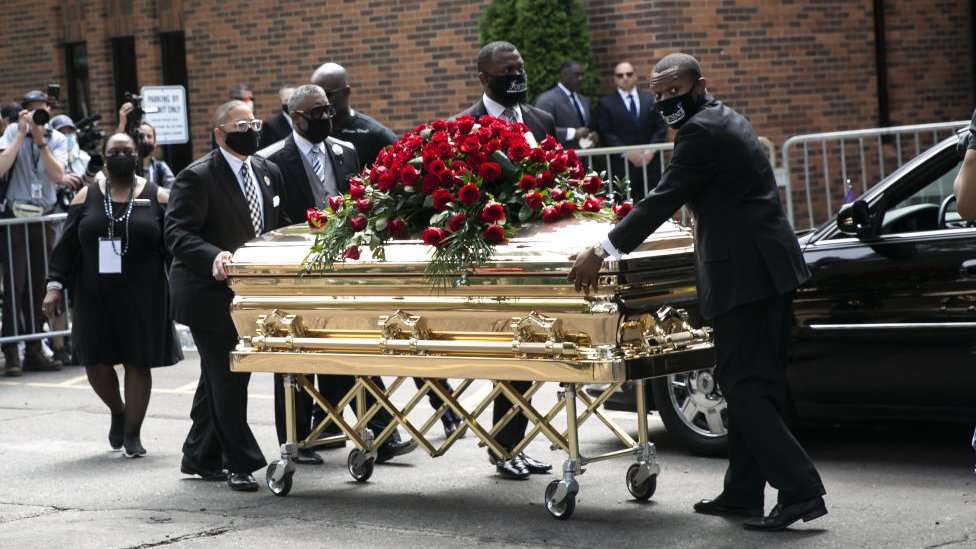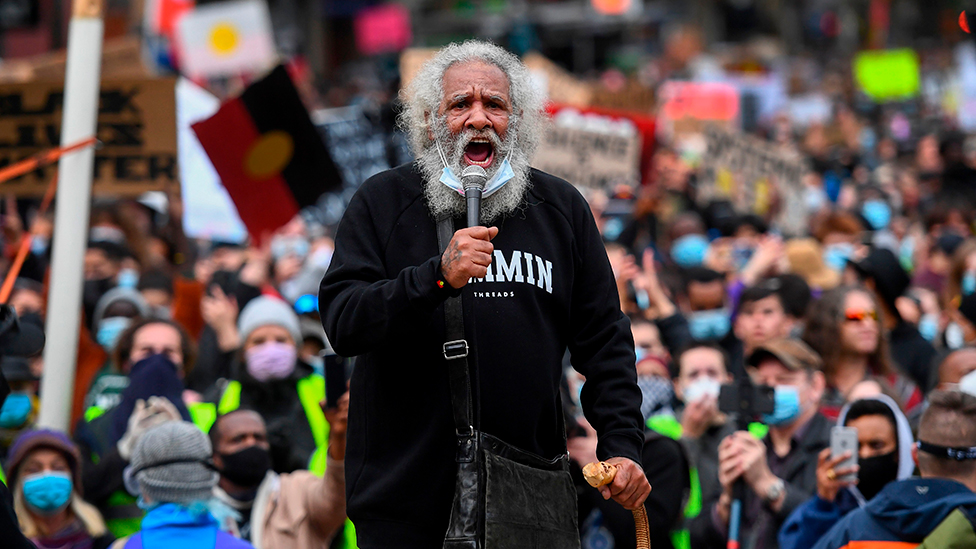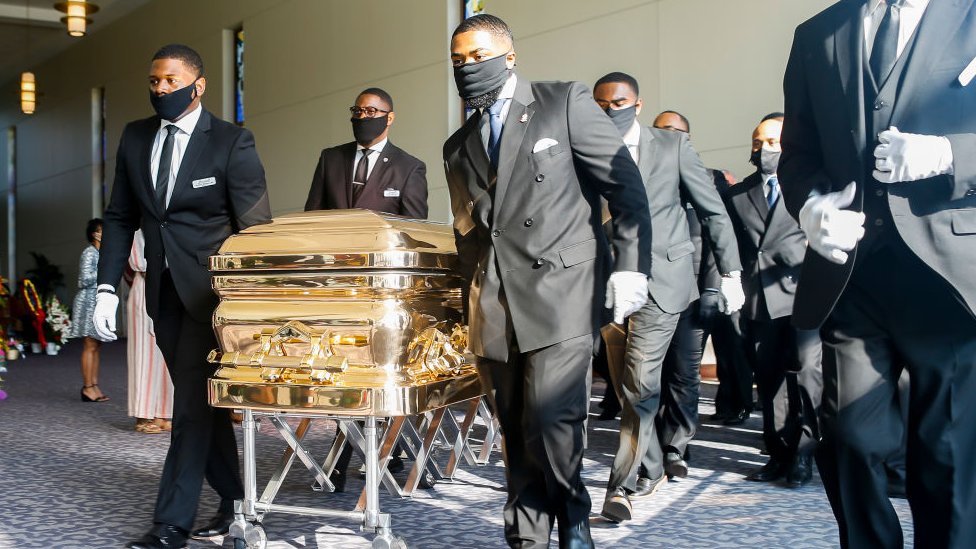George Floyd: Minneapolis council pledges to dismantle police department
- Published
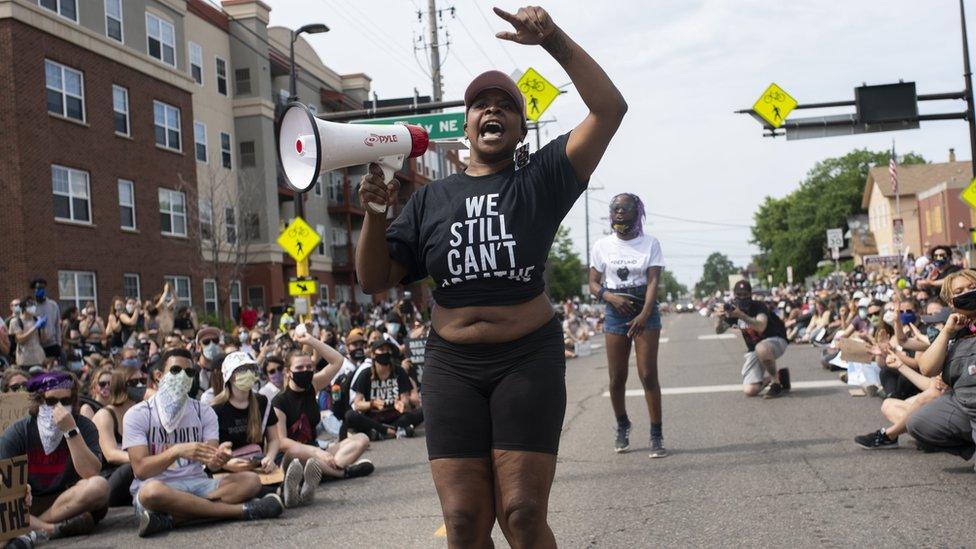
Demonstrators have defended the dismantling of the police department in Minneapolis
A majority of Minneapolis City Council has pledged to dismantle the local police department, a significant move amid nationwide protests sparked by George Floyd's death last month.
Nine of the 13 councillors said a "new model of public safety" would be created in a city where law enforcement has been accused of racism.
Mayor Jacob Frey earlier opposed the move, drawing boos from the crowds.
Activists, who for years have demanded such a step, called it a turning point.
But commentators say Minneapolis can now expect a long and complex debate over policing, and it remains unclear what form structural reform will take.
Mr Floyd's death in police custody triggered mass protests against racism and police brutality.
Officer Derek Chauvin, who knelt on Mr Floyd's neck for almost nine minutes, has been dismissed and charged with second-degree murder. He will make his first court appearance later on Monday.
Three other officers who were at the scene have also been sacked and charged with aiding and abetting.
What did Minneapolis City Council members say?
The nine councillors read a statement to hundreds of protesters on Sunday.
"We are here because here in Minneapolis and in cities across the United States it is clear that our existing system of policing and public safety is not keeping our communities safe," City Council President Lisa Bender was quoted as saying.
"Our efforts at incremental reform have failed. Period."
Ms Bender said details of the overhaul plan needed to be discussed further, adding that she would try to shift police funding towards community based strategies.
Meanwhile, councillor Alondra Cano tweeted that "a veto-proof majority" in the council, external had agreed that the city police department was "not reformable and that we're going to end the current policing system".
The history of police violence in the US
Last week, Minnesota launched a civil rights investigation of the Minneapolis Police Department, with Governor Tim Walz saying he wanted to root out "systemic racism that is generations deep".
The city council later voted for a number of policing changes, including the ban on chokeholds and neck restraints by police officers.
What has the reaction been?
The reform plan in Minneapolis sets up what is likely to be a complicated discussion over new ways of policing across the US. But the process of setting up a new system will probably take months, and is not guaranteed because of the mayor's opposition.
Reacting to the announcement, Kandace Montgomery, the director of the Minnesota-based campaign group Black Vision, said: "It shouldn't have taken so much death to get us here. We're safer without armed, unaccountable patrols supported by the state hunting black people."
On Monday, Democrats in Congress are expected to present sweeping legislation on police reform.

More on George Floyd's death
VIEWPOINT: Tipping point for racially divided nation
TIMELINE: Recent black deaths at hands of police
BACKGROUND: Five pieces of context to understand the protests
CRIME AND JUSTICE: How are African Americans treated?

What's happening elsewhere?
New York City Mayor Bill de Blasio had already said he would divert money from the city's police department to social services.
"Defund the police" was a rallying cry during the latest street protests, that occasionally spilled into violence and looting.
The US's history of racial inequality has paved the way for modern day police brutality
"Defunding" advocates have for years been condemning what they describe as the aggressive militarised policing in the US.
They argue that police departments' budgets should be slashed and funds diverted to social programmes to avoid unnecessary confrontation and heal the racial divide.
Entire city police departments have been disbanded before in the country: in Compton, California, in 2000, and 12 years later in Camden, New Jersey. In both cases they were replaced with bigger new forces that covered local counties.
What's the latest on the protests?
Demonstrators gathered again on Sunday in US cities including Washington DC, New York, and Los Angeles - where a local broadcaster estimated 20,000 people had rallied down Hollywood Boulevard.
Republican Senator Mitt Romney tweeted pictures of himself marching towards the White House with Christian protesters, with the caption "Black Lives Matter."
The protests were mostly peaceful, and security measures across the US were lifted as unrest started to ease. However, Seattle Police Department said a man drove a car into a demonstration there on Sunday night, before shooting and wounding a 27-year-old bystander.
The UK also saw sizeable weekend protests in support of Black Lives Matter, with demonstrations in cities including London, Manchester, Cardiff, Leicester and Sheffield.
Protesters in London knelt for a minute's silence before chanting "no justice, no peace".
In Australia, tens of thousands joined anti-racism protests in Brisbane, Melbourne, Hobart, Adelaide and elsewhere, despite warnings from officials over the coronavirus.

